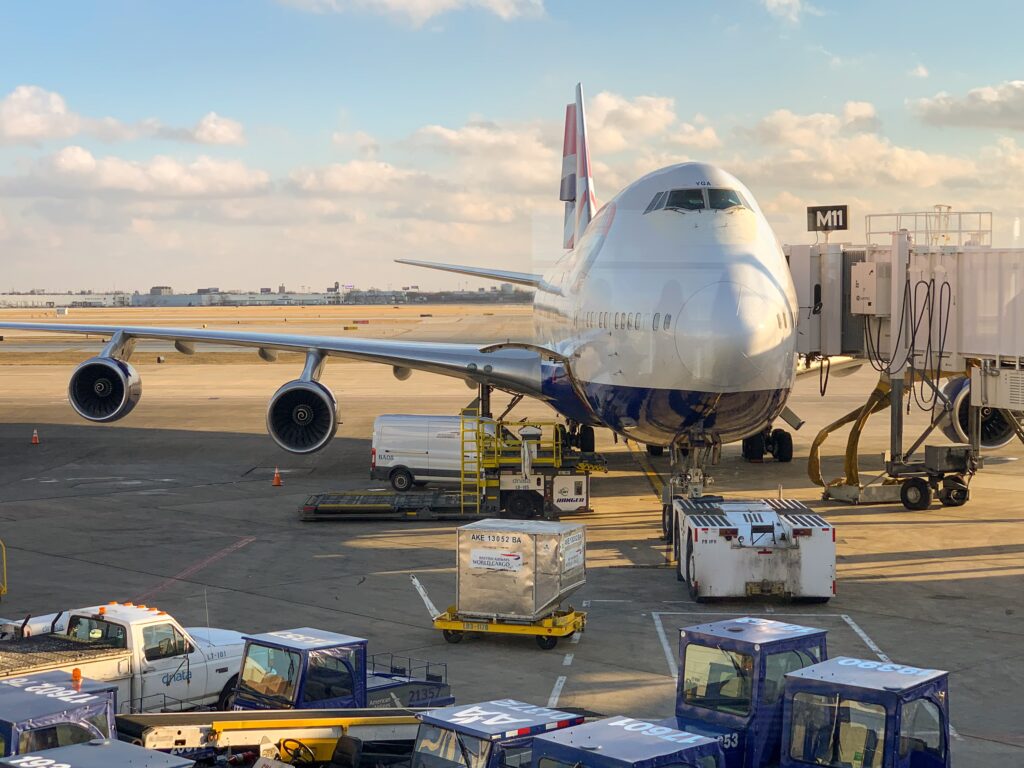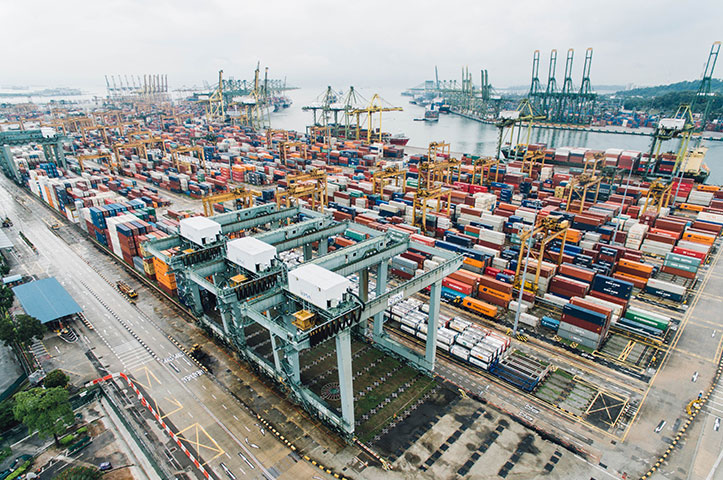
African Cargo Transport
Transporting cargo to Africa presents unique challenges and opportunities. It’s a task that requires efficient coordination, robust infrastructure, and forward-thinking policies. The role of government in this domain is critical. Governments must act not only as regulators but also as enablers, ensuring that cargo to Africa is moved efficiently, safely, and sustainably.
As the lifeline of trade and economic development, cargo transportation in Africa demands a strategic approach. Governments, by investing in infrastructure and technology, streamlining policies, and fostering sustainable practices, can significantly enhance the efficiency and reliability of cargo movements to and from the continent.
1. Infrastructure Development
A key factor in improving cargo transportation in Africa is the development of robust infrastructure. Efficient transport systems are essential for moving goods quickly and cost-effectively. This involves upgrading existing roads, ports, and railways, as well as developing new ones to meet the growing demand.
Investing in Physical Infrastructure
The foundation of successful cargo transportation is strong physical infrastructure. This includes not only roads and railways but also ports and airports. Governments need to allocate funds and resources to build and maintain these critical assets. This process involves understanding current deficiencies and planning for future growth. Additionally, integrating different modes of transportation, such as rail, road, and maritime, is essential to create a seamless cargo transport network.

Moreover, investment should not be limited to the physical aspects alone. It’s vital to ensure that these infrastructures are equipped with modern technologies to handle the complexities of today’s cargo movements. This includes automated systems for handling and tracking cargo, which can significantly reduce delays and enhance efficiency.
Developing Logistics Facilities
Alongside physical infrastructure, the development of logistics facilities plays a crucial role. These facilities, including warehouses, container depots, and distribution centres, must be strategically located and well-equipped. They should be designed to handle various types of cargo efficiently, ensuring quick turnover and reduced bottlenecks.
In addition, the integration of technology in these logistics facilities is crucial. Advanced inventory management systems and automated handling equipment can greatly improve the speed and accuracy of cargo processing. This not only enhances efficiency but also reduces the risk of damage or loss, ensuring that cargo to Africa reaches its destination in optimal condition.
2. Policy and Regulation
Effective policy and regulation are fundamental for the smooth operation of cargo transportation. Governments must develop clear, practical regulations that safeguard interests without hindering the flow of goods. This involves balancing security, safety, and efficiency.
Harmonizing Transport Regulations
To facilitate easier movement of cargo, it’s vital to harmonize transport regulations across different African countries. This means creating common standards and procedures that all countries in the region can adopt. Such harmonization reduces the complexity and time involved in cross-border transportation, leading to more efficient cargo movement.

Further, there’s a need for collaborative efforts among African nations to address regional challenges. Joint initiatives can lead to the development of shared infrastructure and systems, making the transportation of cargo to Africa more streamlined and less prone to delays.
Simplifying Customs Processes
Customs processes can often be a major bottleneck in cargo transportation. Simplifying these processes is crucial for efficient cargo movement. This involves the adoption of digital documentation, streamlined procedures, and transparent systems. By reducing paperwork and simplifying procedures, cargo can move more quickly through customs, reducing delays and costs.
In addition, implementing advanced customs technologies, such as electronic data interchange (EDI) and automated customs clearance systems, can further enhance the speed and accuracy of the customs process. This not only benefits the transporters but also improves overall trade efficiency.
Promoting Competition and Reducing Transport Costs
Promoting competition in the cargo transportation sector is essential for reducing costs and improving service quality. Governments can encourage competition by ensuring a level playing field, where no single entity has the undue advantage. This involves regulating monopolistic practices and encouraging the entry of new players.
Additionally, reducing transport costs is crucial for making cargo movement to Africa more accessible and affordable. This can be achieved by subsidizing certain transportation modes, offering tax incentives, and investing in cost-effective technologies.
3. Trade Facilitation
The facilitation of trade through efficient cargo transportation is a key role of governments. By adopting measures that streamline and expedite the movement of goods, governments can significantly boost trade and economic growth.
Adopting Trade Facilitation Agreements
Adoption of trade facilitation agreements is vital for smooth cargo transportation. These agreements, often multilateral, aim to simplify and harmonize international trade procedures. By committing to such agreements, African governments can ensure smoother, faster, and more predictable cross-border movement of cargo.
Furthermore, these agreements often include provisions for mutual recognition of standards and procedures, which can significantly reduce the time and cost associated with cargo movements. This is especially important in the African context, where cross-border trade is a key driver of economic growth.
Investing in Technology
Investing in technology is essential for modernizing cargo transportation. This includes the adoption of digital platforms for tracking and managing cargo, as well as the use of advanced technologies like GPS and RFID for real-time tracking. Such technologies not only enhance efficiency but also improve transparency and security in the transportation process.
Moreover, embracing innovative solutions like blockchain can revolutionize how cargo is tracked and documented. This leads to more reliable and tamper-proof systems, ensuring the integrity of cargo movements to Africa.
4. Sustainability and Environmental Protection
Sustainable practices in cargo transportation are crucial for protecting the environment and ensuring long-term economic viability. Governments must prioritize sustainability in their transportation policies and practices.
Promoting Sustainable Transport Modes
Promoting sustainable transport modes is key to minimizing the environmental impact of cargo transportation. This includes encouraging the use of eco-friendly vehicles, adopting cleaner fuel options, and investing in renewable energy sources for transportation infrastructure.
In addition, implementing regulations that incentivize the use of environmentally friendly practices can significantly contribute to reducing the carbon footprint of cargo transportation. This not only benefits the environment but also aligns with global sustainability goals.
Developing Regulations for Safe and Responsible Transport
Developing regulations for safe and responsible transport is essential. This involves setting standards for vehicle emissions, cargo handling, and waste management. These regulations should ensure that cargo transportation does not adversely affect the environment or compromise safety.
Furthermore, regular monitoring and enforcement of these regulations are crucial. This ensures compliance and encourages continuous improvement in environmental and safety standards in the cargo transportation sector.
Challenges and Considerations
- Limited resources: Many African governments face constraints in budget and expertise to invest adequately in infrastructure and implement these policies.
- Corruption and inefficiency: Bureaucracy, corruption, and inefficient institutions can impede progress and undermine the effectiveness of government interventions.
- Capacity building: Building the capacity of government agencies and stakeholders involved in the transport sector is crucial for the effective implementation of policies and programs.
Overall, the role of government in African cargo transportation is critical for creating an enabling environment for efficient, sustainable, and inclusive trade and economic growth. By prioritizing infrastructure development, implementing effective policies, facilitating trade, and promoting sustainability, governments can unlock the immense potential of Africa’s cargo transportation sector and drive inclusive development across the continent.






